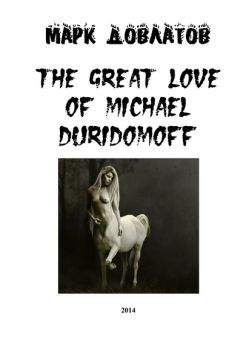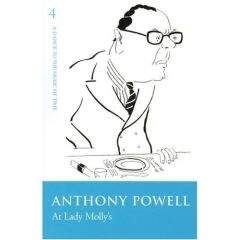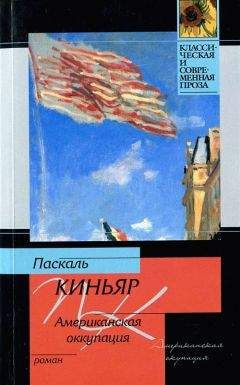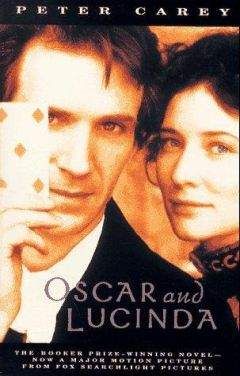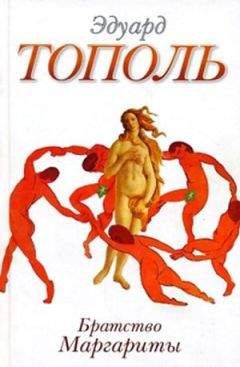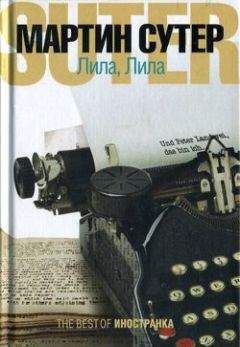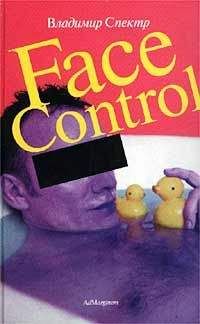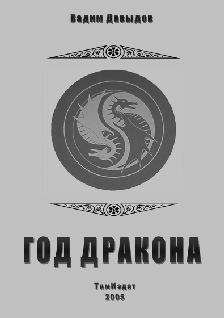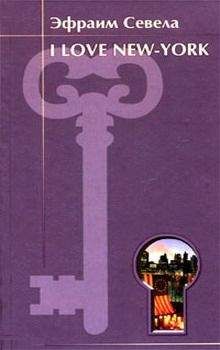Anthony Powell - A Buyers Market

Скачивание начинается... Если скачивание не началось автоматически, пожалуйста нажмите на эту ссылку.
Жалоба
Напишите нам, и мы в срочном порядке примем меры.
Описание книги "A Buyers Market"
Описание и краткое содержание "A Buyers Market" читать бесплатно онлайн.
Anthony Powell's universally acclaimed epic A Dance to the Music of Time offers a matchless panorama of twentieth-century London. Now, for the first time in decades, readers in the United States can read the books of Dance as they were originally published-as twelve individual novels-but with a twenty-first-century twist: they're available only as e-books. The second volume, A Buyer's Market (1952), finds young Nick Jenkins struggling to establish himself in London. Amid the fever of the 1920s, he attends formal dinners and wild parties; makes his first tentative forays into the worlds of art, culture, and bohemian life; and suffers his first disappointments in love. Old friends come and go, but the paths they once shared are rapidly diverging: Stringham is settling into a life of debauchery and drink, Templer is plunging into the world of business, and Widmerpool, though still a figure of out-of-place grotesquerie, remains unbowed, confident in his own importance and eventual success. A Buyer's Market is a striking portrait of the pleasures and anxieties of early adulthood, set against a backdrop of London life and culture at one of its most effervescent moments.
The man, an old fellow with a blotched face, who had perhaps taken the opportunity to sample the champagne himself more freely than had been wise, stared at her, and, setting down the tray, ambled slowly off. Stringham caught sight of us sitting near-by. He took a step towards me.
“At least I can rely on you, Nick, as an old friend,” he said, “to accompany me to a haunt of vice. Somewhere where the stains on the table-cloth make the flesh creep — some cellar far below the level of the street, where ageing harlots caper cheerlessly to the discordant strains of jazz.”
Mrs. Andriadis grasped at once that we had known each other for a long time, because she smiled with one of those looks of captivating and whole-hearted sincerity that must have contributed in no small degree to her adventurous career. I was conscious that heavy artillery was now ranged upon my position. At the same time she managed to present herself — as it were, stood before me — in her weakness, threatened by Stringham’s behaviour certainly aggravating enough, remarking softly: “Do tell him not to be such an ass.
Stringham, too, perfectly took in the situation, evidently deciding immediately, and probably correctly, that if any kind of discussion were allowed to develop between the three of us, Mrs. Andriadis would, in some manner, bring him to heel. There had been, presumably, some collision of wills between them in the course of the evening; probably the consequence of mutual irritation extending over weeks, or even months. Perhaps he had deliberately intended to provoke a quarrel when he had arrived at the house that evening. The situation had rather the appearance of something of the sort. It was equally possible that he was suffering merely from the same kind of restlessness that had earlier afflicted Gypsy Jones. I did not know. In any case, though no business of mine, a break between them might be for the best. However, no time remained to weigh such question in the balance, because Stringham did not wait. He laughed loudly, and went off through the door. Mrs. Andriadis took my arm.
“Will you persuade him to stay!” she said, with that trace of Cockney which — as Barnby would have remarked — had once “come near to breaking a royal heart.”
At that moment the young man with the orchid, who had risen with dignity from the sofa where he had been silently contemplating the world, came towards us, breaking into the conversation with the words: “My dear Milly, I simply must tell you the story about Theodoric and the Prince of Wales …”
“Another time, darling.”
Mrs. Andriadis gave him a slight push with her left hand, so that he collapsed quietly, and apparently quite happily, into an easy-chair. Almost simultaneously an enormous, purple-faced man with a decided air of authority about him, whose features were for some reason familiar to me, accompanied by a small woman, much younger than himself, came up, mumbling and faintly swaying, as he attempted to thank Mrs. Andriadis for entertaining them. She brushed him aside, clearly to his immense, rather intoxicated surprise, with the same ruthlessness she had shown to the young man with the orchid: at the same time saying to another servant, whom I took, this time, to be her own butler: “I told one of those bloody hired men to fetch my coat. Go and see where he’s got to.”
All these minor incidents inevitably caused delay, giving Stringham a start on the journey down the stairs, towards which we now set off, Mrs. Andriadis still grasping my arm, along which, from second to second, she convulsively altered the grip of her hand. As we reached the foot of the last flight together, the front door slammed. Three or four people were chatting, or putting on wraps, in the hall, in preparation to leave. The elderly lady with the black eyebrows and tiara was sitting on one of the crimson and gold high-backed chairs, beneath which I could see a pile of War Never Pays!: Mr. Deacon’s, or those forgotten by Gypsy Jones. She had removed her right shoe and was examining the heel intently, to observe if it were still intact. Mrs. Andriadis let go my arm, and ran swiftly towards the door, which she wrenched open violently, just in time to see a taxi drive away from the front of the house. She made use of an expletive that I had never before — in those distant days — heard a woman employ. The phrase left no doubt in the mind that she was extremely provoked. The door swung on its hinge. In silence Mrs. Andriadis watched it shut with a bang. It was hard to know what comment, if any, was required. At that moment the butler arrived with her coat.
“Will you wear it, madam?”
“Take the damned thing away,” she said. “Are you and the rest of them a lot of bloody cripples? Do I have to wait half an hour every time I want to go out just because I haven’t a rag to put round me?”
The butler, accustomed no doubt to such reproaches as all in the day’s work — and possibly remunerated on a scale to allow a generous margin for hard words — seemed entirely undisturbed by these strictures on his own agility, and that of his fellows. He agreed at once that his temporary colleague “did not appear to have his wits about him at all.” In the second’s pause during which Mrs. Andriadis seemed to consider this statement, I prepared to say goodbye, partly from conviction that the occasion for doing so, once missed, might not easily recur; even more, because immediate farewell would be a convenient method of bringing to an end the distressing period of tension that had come into existence ever since Stringham’s departure, while Mrs. Andriadis contemplated her next move. However, before there was time, on my own part, to take any step in the direction of leave-taking, a loud noise from the stairs behind distracted my attention. Mrs. Andriadis, too, was brought by this sudden disturbance out of the state of suspended animation into which she appeared momentarily to have fallen.
The cause of the commotion now became manifest. Mr. Deacon and the singer, Max Pilgrim, followed by the Negro, were descending the stairs rapidly, side by side, jerking down from step to step in the tumult of a frantic quarrel. At first I supposed, improbable as such a thing would be, that some kind of practical joke or “rag” was taking place in which all three were engaged; but looking closer, it became plain that Mr. Deacon was angry with Pilgrim, while the Negro was more or less a spectator, not greatly involved except by his obvious enjoyment of the row. The loose lock of Mr. Deacon’s hair had once more fallen across his forehead: his voice had taken on a deep and mordant note. Pilgrim was red in the face and sweating, though keeping his temper with difficulty, and attempting to steer the dispute, whatever its subject, into channels more facetious than polemical.
“There are always leering eyes on the look-out,” Mr. Deacon was saying. “Besides, your song puts a weapon in the hands of the puritans.”
“I don’t expect there were many puritans present—” began Pilgrim.
Mr. Deacon cut him short.
“It is a matter of principle,” he said. “If you have any.”
“What do you know about my principles?” said Pilgrim. “I don’t expect your own principles bear much examination when the lights are out.”
“I can give you an assurance that you have no cause to worry about my principles,” Mr. Deacon almost screamed. “Such a situation could never arise — I can assure you of that. This is not the first time, to my knowledge, that you have presumed on such a thing.”
This comment seemed to annoy Pilgrim a great deal, so that he now became scarcely less enraged than Mr. Deacon himself. His quavering voice rose in protest, while Mr. Deacon’s sank to a scathing growl: the most offensive tone I have ever heard him employ.
“You person,” he said.
Turning fiercely away from Pilgrim, he strode across the hall in the direction of the chair under which he had stored away War Never Pays! Together with his own copies, he gathered up those brought by Gypsy Jones — forgotten by her, as I had foreseen — and, tucking a sheaf under each arm, he made towards the front door. He ignored the figure of Mrs. Andriadis, of whose presence he was no doubt, in his rage, entirely unaware. The catch of the door must have jammed, for that, or some other cause, prevented the hinge from opening freely. Mr. Deacon’s first intention was evidently to hold all the papers, his own and those belonging to Gypsy Jones, under his left arm for the brief second during which he opened the door with his right hand to sweep for ever from the obnoxious presence of Max Pilgrim. However, the two combined packets of War Never Pays! made quite a considerable bundle, and he must have found himself compelled to bring his left hand also into play, while he hugged most of the copies of the publication — by then rather crumpled — by pressure from his left elbow against his side. The door swung open suddenly. Mr. Deacon was taken by surprise. All at once there was a sound as of the rending of silk, and the papers, like a waterfall — or sugar on Widmerpool’s head — began to tumble, one after another, to the ground from under Mr. Deacon’s-arm. He made a violent effort to check their descent, contriving only to increase the area over which they were freely shed; an unexpected current of air blowing through the open door at that moment into the house helped to scatter sheets of War Never Pays! far and wide throughout the hall, even up to the threshold of the room beyond. There was a loud, stagey laugh from the stairs in the background. “Ha! Ha! Ha!”
It was the Negro. He was grinning from ear to ear, now more like a nigger minstrel — a coon with bones and tambourine from some old-fashioned show on the pier at a seaside resort of the Victorian era — than his former dignified, well-groomed self. The sound of his wild, African laughter must have caused Mrs. Andriadis to emerge unequivocally from her coma. She turned on Mr< Deacon.
“You awful old creature,” die said, “get out of my house.”
He stared at her, and then burst into a fearful fit of coughing, clutching at his chest. My hat stood on a table not far away. While Mrs. Andriadis was still turned from me, I took it up without further delay, and passed through the open door. Mr. Deacon had proved himself a graver responsibility than I, for one, by then felt myself prepared to sustain. They could, all of them, arrange matters between themselves without my help. It would, indeed, be better so. Whatever solution was, in fact, found to terminate the complexities of that moment, Mr. Deacon’s immediate expulsion from the house at the command of Mrs. Andriadis was not one of them; because, when I looked back — after proceeding nearly a hundred yards up the road — there was still no sign of his egress, violent or otherwise, from the house.
It was already quite light in the street, and although the air was fresh, almost breezy, after the atmosphere of the party, there was a hint, even at this early hour, of another sultry day on the way. Narrow streaks of blue were already beginning to appear across the flat surface of a livid sky. The dawn had a kind of heaviness, perhaps of thundery weather in the offing. No one was about, though the hum of an occasional car driving up Park Lane from time to time broke the silence for a few seconds, the sound, mournful as the huntsman’s horn echoing in the forest, dying away quickly in the distance. Early morning bears with it a sense of pressure, a kind of threat of what the day will bring forth. I felt unsettled and dissatisfied though not in the least drunk. On the contrary, my brain seemed to be working all at once with quite unusual clarity. Indeed, I found myself almost deciding to sit down, as soon as I reached my room, and attempt to compose a series of essays on human life and character in the manner of, say, Montaigne, so icily etched in my mind at that moment appeared the actions and nature of those with whom that night I had been spending my time. However, second thoughts convinced me that any such efforts at composition would be inadvisable at such an hour. The first thing to do on reaching home would be to try and achieve some sleep. In the morning, literary matters might be reconsidered. I was conscious of having travelled a long way since the Walpole-Wilsons’ dinner-party. I was, in fact, very tired.
Attempting to sort out and classify the events of the night, as I walked home between the grey Mayfair houses, I found myself unable to enjoy in retrospect the pleasure reasonably to be expected from the sense of having broken fresh ground. Mrs. Andriadis’s party had certainly been something new. Its strangeness and fascination had not escaped me. But there appeared now, so far as I could foresee, no prospect of setting foot again within those unaccustomed regions; even temporary connection with them, tenuously supplied by Stringham in his latest avatar, seeming uncompromisingly removed by the drift of circumstance.
Apart from these reflections, I was also painfully aware that I had, so it appeared to me, prodigally wasted my time at the party. Instead, for example, of finding a girl to take the place of Barbara — she, at least had been finally swept away by Mrs. Andriadis — I had squandered the hours of opportunity with Mr. Deacon, or with Sillery. I thought suddenly of Sunny Farebrother, and the pleasure he had described himself as deriving from meeting “interesting people” in the course of his work at the Peace Conference. No such “interesting” contacts, so far as I myself had been concerned that evening, could possibly have been said to have taken place. For a moment I regretted having refused Gypsy Jones’s invitation to accompany her to The Merry Thought. From the point of view of either sentiment or snobbery, giving both terms their widest connotation, the night had been an empty one. I had, so it appeared, merely stayed up until the small hours — no doubt relatively incapacitating myself for serious work on the day following — with nothing better to show for it than the certainty, now absolute, that I was no longer in love with Barbara Goring; though this emancipation would include, of course, relief also from such minor irritations as Tompsitt and his fellows. I remembered now, all at once, Widmerpool’s apprehensions at what had seemed to him the “unserious” nature of my employment.
As I reached the outskirts of Shepherd Market, at that period scarcely touched by rebuilding, I regained once more some small sense of exultation, enjoyed whenever crossing the perimeter of that sinister little village, that I lived within an enchanted precinct. Inconvenient, at moments, as a locality: noisy and uncomfortable: stuffy, depressing, unsavoury: yet the ancient houses still retained some vestige of the dignity of another age; while the inhabitants, many of them existing precariously on their bridge earnings, or hire of their bodies, were — as more than one novelist had, even in those days, already remarked — not without their own seedy glory.
Now, touched almost mystically, like another Stonehenge, by the first rays of the morning sun, the spot seemed one of those clusters of tumble-down dwellings depicted By Canaletto or Piranesi, habitations from amongst which arches, obelisks and viaducts, ruined and overgrown with ivy, arise from the mean houses huddled together below them. Here, too, such massive structures might, one felt, at any moment come into existence by some latent sorcery, for the place was scarcely of this world, and anything was to be surmised. As I penetrated farther into the heart of that rookery, in the direction of my own door, there even stood, as if waiting to greet a friend, one of those indeterminate figures that occur so frequently in the pictures of the kind suggested — Hubert Robert or Pannini — in which the architectural subject predominates. This materialisation took clearer shape as a man, middle-aged to elderly, wearing a bowler hat and discreetly horsy overcoat, the collar turned-up round a claret-coloured scarf with white spots. He leant a little to one side on a rolled umbrella, just as those single figures in romantic landscape are apt to pose; as if the painter, in dealing with so much static matter, were determined to emphasise “movement” in the almost infinitesimal human side of his composition.
Подписывайтесь на наши страницы в социальных сетях.
Будьте в курсе последних книжных новинок, комментируйте, обсуждайте. Мы ждём Вас!
Похожие книги на "A Buyers Market"
Книги похожие на "A Buyers Market" читать онлайн или скачать бесплатно полные версии.
Мы рекомендуем Вам зарегистрироваться либо войти на сайт под своим именем.
Отзывы о "Anthony Powell - A Buyers Market"
Отзывы читателей о книге "A Buyers Market", комментарии и мнения людей о произведении.






